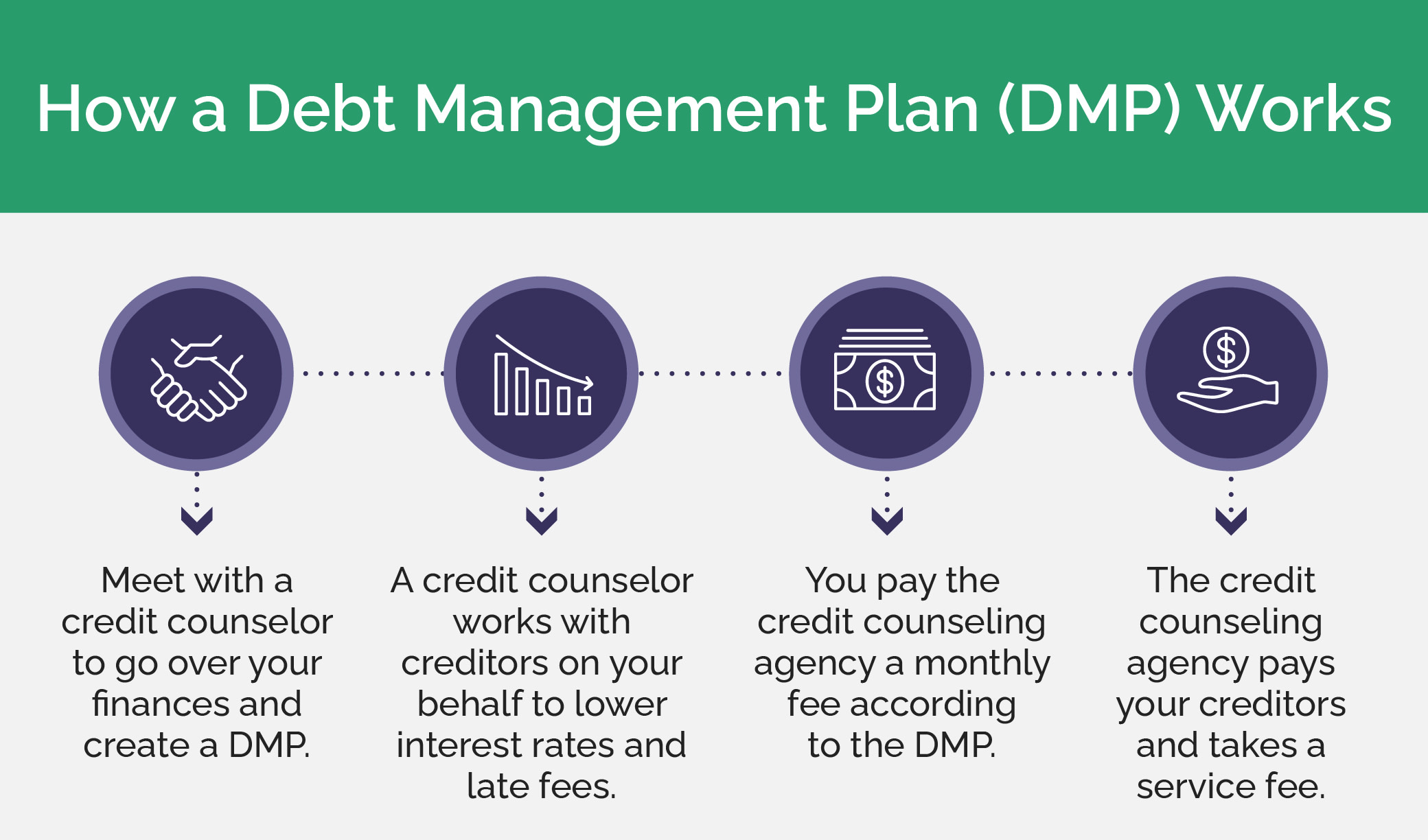Optimize Your Financial Prospective with Professional Debt Management Plan Services
Optimize Your Financial Prospective with Professional Debt Management Plan Services
Blog Article
Professional Tips and Strategies for Applying a Successful Debt Monitoring Plan
When it comes to navigating the intricacies of debt administration, having a well-balanced strategy is vital for attaining financial stability. From examining your present economic standing to negotiating with creditors, each step plays an essential duty in shaping an effective financial debt monitoring plan.
Evaluating Your Existing Financial Scenario
Prior to beginning on a debt monitoring plan, it is crucial to extensively assess your existing financial standing. Comprehending your financial circumstance is the fundamental step in the direction of efficiently taking care of and reducing your financial obligation.

Creating a Realistic Spending Plan
Understanding your current monetary situation lays the groundwork for creating a sensible budget plan that aligns with your financial debt administration goals and financial capacities. When producing a budget plan, it's essential to accurately track your revenue, expenses, and financial debt responsibilities. By categorizing your expenditures, you can determine areas where you might require to cut back to free up funds for financial debt repayment.

Focusing On and Taking On Debts
To effectively regain control of your funds and work towards economic stability, prioritizing and tackling your financial debts is a vital step in your financial debt monitoring strategy. Determine high-interest debts that are costing you the most cash and prioritize paying them off.
After identifying your high-interest financial debts, think about using approaches like the financial obligation snowball or financial obligation avalanche method to pay them off systematically. The financial debt snowball technique involves settling the smallest financial debts first, while the debt avalanche approach prioritizes debts with the highest possible rate of interest prices. Select the technique that lines up best with your economic objectives and inspires you to keep making development.
In addition, take into consideration working out with financial institutions for reduced interest rates or establishing a payment strategy if you're struggling to satisfy your existing obligations. Looking for aid from a credit counselor or monetary expert can also supply beneficial insights and support on just how to successfully tackle your financial obligations - debt management plan services. By focusing on and resolving your debts tactically, you can lead the way towards a debt-free future and enhanced economic health
Negotiating With Lenders
When engaging in financial debt monitoring, bargaining with lenders is an important action in the direction of locating equally valuable remedies for financial obligation payment. Before launching arrangements, it is crucial to have a clear understanding of your monetary circumstance, including your earnings, expenses, and the total quantity of financial debt owed.

Structure Healthy And Balanced Financial Behaviors
Incorporating constant budgeting techniques is important for growing healthy and balanced financial routines. Budgeting enables people to track their revenue and expenditures, allowing them to make informed decisions regarding their economic priorities. Setting certain economic objectives, such as saving for emergency situations or retired life, can offer a clear roadmap for taking care of money properly.
One more key facet of structure healthy and balanced financial habits is living why not try this out within one's ways. This entails costs much less than what is gained and staying clear of unneeded debt. Embracing a prudent state of mind and differentiating between requirements and desires can help individuals make even more sensible costs options.
Regularly keeping track of and reviewing financial statements credit history records are crucial routines that advertise financial awareness and duty. By staying notified regarding their financial standing, individuals can imp source recognize possible issues at an early stage and take positive steps to resolve them.
In addition, establishing a savings behavior, also with little quantities, can contribute significantly to lasting monetary security. Conserving routinely not just develops an economic padding for unforeseen costs yet also fosters a feeling of technique and duty in the direction of finance. By continually exercising these habits, people can lay a solid foundation for a steady monetary future.
Conclusion
To conclude, implementing an effective financial debt management strategy needs a thorough evaluation of one's economic circumstance, the development of a sensible budget, prioritizing and taking on financial debts, negotiating with lenders, and building healthy and balanced financial practices (debt management plan services). By following these professional suggestions and approaches, people can take control of their finances and job towards accomplishing economic stability and flexibility from debt
Comprehending your existing economic situation lays the foundation for developing a reasonable budget plan that straightens with your financial debt management goals and monetary abilities.To properly regain control of your finances and job in the direction of economic stability, prioritizing and tackling your financial obligations is a crucial step in your financial obligation administration plan.After determining your high-interest financial obligations, think about utilizing methods like the financial debt snowball or financial debt avalanche technique to pay them off methodically. The financial debt try this site snowball technique includes paying off the smallest financial obligations first, while the debt avalanche method focuses on financial debts with the highest possible passion prices.When engaging in debt management, working out with lenders is an important step towards finding equally valuable remedies for financial obligation payment.
Report this page